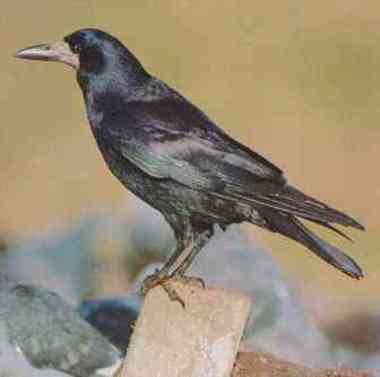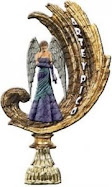I know this is a little long, but my next big article for Eric at Planet Natural is on composting, so it had to be done. If it's too long for you, read the first line of each stanza and the whole last stanza, especially the last line. And if the idea that I'm giving advice about how to skim a poem horrifies you, well, now you know the worst about me.
This Compost
SOMETHING startles me where I thought I was safest; |
|
| I withdraw from the still woods I loved; | |
| I will not go now on the pastures to walk; | |
| I will not strip the clothes from my body to meet my lover the sea; | |
| I will not touch my flesh to the earth, as to other flesh, to renew me. | 5 |
| O how can it be that the ground does not sicken? | |
| How can you be alive, you growths of spring? | |
| How can you furnish health, you blood of herbs, roots, orchards, grain? | |
| Are they not continually putting distemper’d corpses within you? | |
| Is not every continent work’d over and over with sour dead? | 10 |
| Where have you disposed of their carcasses? | |
| Those drunkards and gluttons of so many generations; | |
| Where have you drawn off all the foul liquid and meat? | |
| I do not see any of it upon you to-day—or perhaps I am deceiv’d; | |
| I will run a furrow with my plough—I will press my spade through the sod, and turn it up underneath; | 15 |
| I am sure I shall expose some of the foul meat. | |
Behold this compost! behold it well! |
|
| Perhaps every mite has once form’d part of a sick person—Yet behold! | |
| The grass of spring covers the prairies, | |
| The bean bursts noislessly through the mould in the garden, | 20 |
| The delicate spear of the onion pierces upward, | |
| The apple-buds cluster together on the apple-branches, | |
| The resurrection of the wheat appears with pale visage out of its graves, | |
| The tinge awakes over the willow-tree and the mulberry-tree, | |
| The he-birds carol mornings and evenings, while the she-birds sit on their nests, | 25 |
| The young of poultry break through the hatch’d eggs, | |
| The new-born of animals appear—the calf is dropt from the cow, the colt from the mare, | |
| Out of its little hill faithfully rise the potato’s dark green leaves, | |
| Out of its hill rises the yellow maize-stalk—the lilacs bloom in the dooryards; | |
| The summer growth is innocent and disdainful above all those strata of sour dead. | 30 |
| What chemistry! | |
| That the winds are really not infectious, | |
| That this is no cheat, this transparent green-wash of the sea, which is so amorous after me, | |
| That it is safe to allow it to lick my naked body all over with its tongues, | |
| That it will not endanger me with the fevers that have deposited themselves in it, | 35 |
| That all is clean forever and forever. | |
| That the cool drink from the well tastes so good, | |
| That blackberries are so flavorous and juicy, | |
| That the fruits of the apple-orchard, and of the orange-orchard—that melons, grapes, peaches, plums, will none of them poison me, |
|
| That when I recline on the grass I do not catch any disease, | 40 |
| Though probably every spear of grass rises out of what was once a catching disease. | |
Now I am terrified at the Earth! it is that calm and patient, |
|
| It grows such sweet things out of such corruptions, | |
| It turns harmless and stainless on its axis, with such endless successions of diseas’d corpses, | |
| It distils such exquisite winds out of such infused fetor, | 45 |
| It renews with such unwitting looks, its prodigal, annual, sumptuous crops, | |
| It gives such divine materials to men, and accepts such leavings from them at last.
by Walt Whitman (1819–1892). Leaves of Grass. 1900. |


 Subscribe to RSS feed
Subscribe to RSS feed


